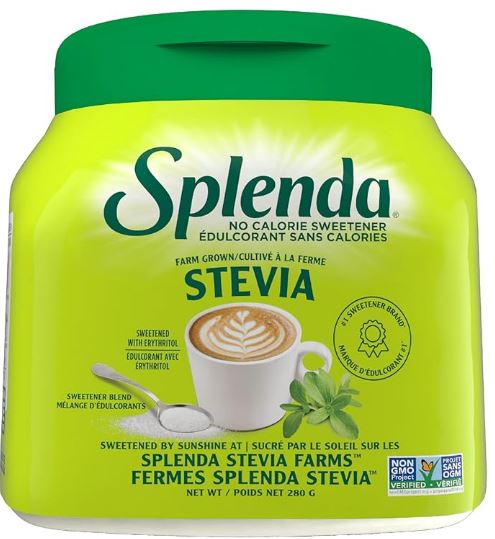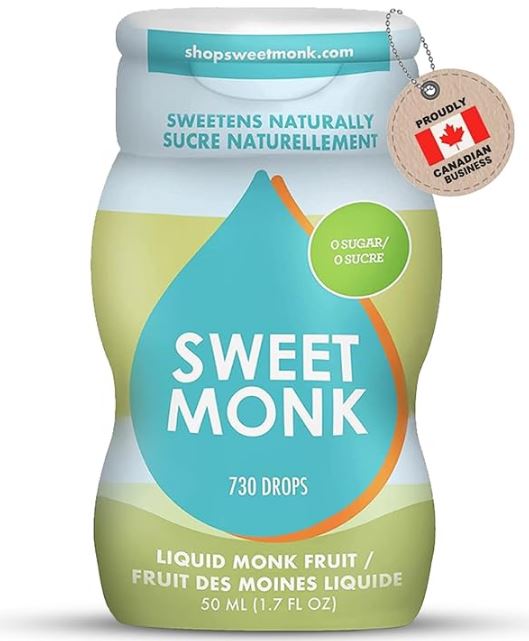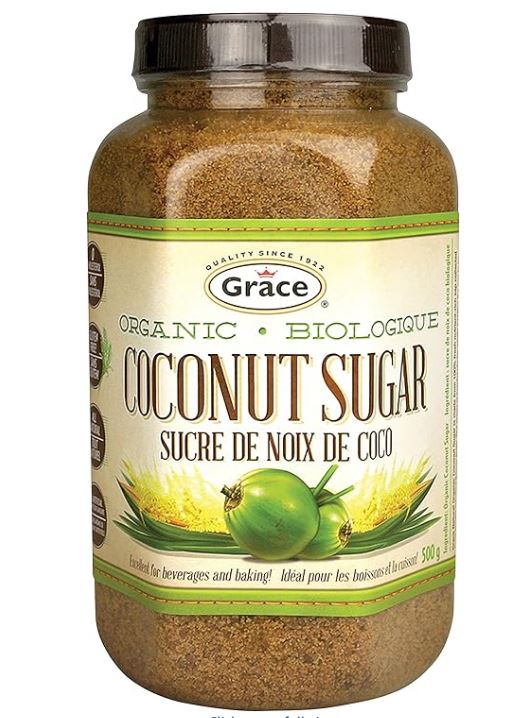
Artificial sweeteners TOP 3 BEST RATED
The top 3 Best Sweeteners available in the market today can be broadly grouped into natural sweeteners, artificial sweeteners, sugar alcohols, and newer low-calorie alternatives.
Natural Sweeteners
Natural sweeteners are top 3 Best Sweeteners ,those derived from plants or animals and include common options like table sugar (sucrose), which comes from sugarcane or sugar beets. Other examples are honey, produced by bees and often used in tea or baking, and maple syrup, tapped from maple trees. Agave nectar, made from the agave plant, is another popular sweetener with a mild flavor and high fructose content. Then there are zero-calorie natural sweeteners like stevia, extracted from the stevia plant, and monk fruit (also known as luo han guo), which is derived from a small melon native to Asia. These natural options are much sweeter than sugar and are often used by people looking to reduce calorie intake or manage blood sugar levels.
Artificial sweeteners
Artificial sweeteners, on the other hand, are chemically synthesized and are usually many times sweeter than sugar. Common examples include aspartame, found in products like Equal and NutraSweet; sucralose, marketed as Splenda and known for its heat stability; saccharin, which has been used for over a century and is found in Sweet’N Low; and acesulfame potassium (Ace-K), often used in combination with other sweeteners. These sweeteners are calorie-free and are popular in diet sodas and other “light” or “sugar-free” products. However, their taste and safety continue to be debated, and some people are sensitive to their aftertastes.
Sugar alcohols
Sugar alcohols are another class of top 3 Best Sweeteners, which include xylitol, erythritol, sorbitol, and maltitol. These are either found naturally in fruits or manufactured from sugars. They contain fewer calories than sugar and are less likely to cause a spike in blood glucose, making them suitable for people with diabetes. Erythritol, for example, is very well-tolerated and often used in keto and low-carb products, while xylitol is known for its dental health benefits but is toxic to dogs. One downside of sugar alcohols is that they can cause digestive discomfort in large amounts.
Novel sweeteners
Lastly, there are newer, so-called “novel” sweeteners like allulose and tagatose. Allulose is a rare sugar that tastes almost like regular sugar but has nearly zero calories and a minimal impact on blood sugar. These types of sweeteners are becoming more popular in health-conscious and low-carb communities. Many products now also use blends of sweeteners—like erythritol mixed with stevia or monk fruit—to create a more balanced taste without the drawbacks of using just one type.
Top 3 Different Types of Sweeteners on Amazon. Price and health comparison
Three of the top different types of sweeteners available on Amazon.com are Stevia, Monk Fruit, and Coconut Sugar. Below is a comparison of their average prices (as of mid-2025, based on typical Amazon listings) and their health benefits:
| Sweetener | Average Amazon Price* (per lb/16 oz) | Key Health Benefits | Notes and Considerations |
|---|---|---|---|
| Stevia | $8–$14 | – Zero calories – Does not raise blood sugar – Plant-based, FDA-approved – May support microbiome diversity | – 200–300x sweeter than sugar – Can have a licorice aftertaste – Good for diabetics and weight control359 |
| Monk Fruit | $10–$18 | – Zero calories – Does not impact blood sugar – Contains antioxidants – Plant-based, FDA-approved | – 150–200x sweeter than sugar – Often blended with erythritol – Good for diabetics and weight management16 |
| Coconut Sugar | $6–$10 | – Lower glycemic index than table sugar (GI 35–40 vs. 68) – Contains small amounts of minerals (iron, zinc, calcium, potassium) – Not “empty calories” | – Similar calories and fructose to sugar – Not calorie-free; moderation needed12 |
*Prices are approximate and vary by brand and packaging.



Health Benefits and Considerations:
- Stevia is a zero-calorie sweetener derived from the leaves of the Stevia rebaudiana plant. It does not spike blood sugar, making it suitable for people with diabetes or those seeking weight control. Recent research suggests it may even benefit gut microbiome diversity. However, some people notice a licorice-like aftertaste359.
- Monk Fruit sweetener is also zero-calorie and does not affect blood sugar, making it a popular choice for diabetics and those on low-carb diets. It contains natural antioxidants and is generally well-tolerated, though it’s often mixed with other sweeteners like erythritol for better texture and taste16.
- Coconut Sugar is less processed than white sugar and contains trace minerals and antioxidants. Its lower glycemic index means it causes a slower rise in blood sugar compared to regular sugar, but it is not calorie-free and should still be consumed in moderation. It’s a good option for those seeking a more natural alternative to refined sugar, but not for those needing to strictly limit sugar intake12.
Summary Table:
| Sweetener | Calories | Glycemic Index | Best For | Cautions |
|---|---|---|---|---|
| Stevia | 0 | ~0 | Diabetics, weight loss | Aftertaste for some |
| Monk Fruit | 0 | ~0 | Diabetics, weight loss | Often blended with others |
| Coconut Sugar | ~15/tsp | 35–40 | Natural alternative | Still contains fructose |
In conclusion:
Stevia and Monk Fruit are the best choices for those seeking calorie-free, blood sugar-friendly options, while Coconut Sugar is a less-processed, mineral-containing alternative to table sugar, though it still contains calories and sugars12569. Always use sweeteners in moderation for optimal health.
What are the health dangers of artificial sweeteners?
Artificial sweeteners are widely used as sugar substitutes, but accumulating research highlights several potential health dangers associated with their regular or high consumption:
- Increased Cardiovascular Risk: Multiple large studies have found that higher intake of artificial sweeteners is linked to a greater risk of cardiovascular diseases, including heart attacks, strokes, and cerebrovascular disease1579. For example, the NutriNet-Santé cohort found a statistically significant association between artificial sweetener consumption (especially aspartame, acesulfame potassium, and sucralose) and increased cardiovascular disease risk5.
- Metabolic Effects: Some research suggests artificial sweeteners may contribute to metabolic syndrome, which includes high blood pressure, high blood sugar, abdominal obesity, and abnormal cholesterol levels—all of which increase the risk of chronic diseases like type 2 diabetes and heart disease679. Long-term use has also been associated with a higher risk of type 2 diabetes7.
- Weight Gain and Appetite: Contrary to their intended use for weight management, artificial sweeteners have been associated in some studies with weight gain, increased appetite, and obesity79. The mechanisms are not fully understood but may involve altered taste perception and changes in hunger signaling.
- Gut Health: Some artificial sweeteners, particularly saccharin and sucralose, may negatively affect the gut microbiome, potentially reducing healthy gut bacteria and impacting overall gut health269. However, evidence in humans is mixed, and more research is needed6.
- Neurologic and Gastrointestinal Symptoms: Reported side effects include headaches, taste perception changes, allergic reactions, bloating, gas, and diarrhea (especially with sugar alcohols)24.
- Blood Sugar Regulation: Artificial sweeteners may impair the body’s ability to regulate blood sugar, potentially increasing the risk of insulin resistance and poor glycemic control69.
- Cancer Risk: The majority of recent research does not support a link between artificial sweeteners and cancer in humans, despite early concerns from animal studies23410.
Summary Table:
| Health Danger | Evidence Level | Notes |
|---|---|---|
| Cardiovascular disease | Strong | Especially with high intake1579 |
| Metabolic syndrome/diabetes | Moderate | Long-term use increases risk679 |
| Weight gain/appetite changes | Moderate | Some studies show association79 |
| Gut microbiome disruption | Emerging | Mixed evidence, more research needed26 |
| Neurologic/GI symptoms | Documented | Headache, GI upset, taste changes24 |
| Cancer | Weak/None | No strong evidence in humans23410 |
Conclusion:
Artificial sweeteners are generally considered safe in moderation, but regular or high consumption may increase the risk of cardiovascular disease, metabolic syndrome, weight gain, and gut health disturbances. Most health agencies recommend limiting their use and opting for naturally unsweetened foods when possible47.
- https://www.health.harvard.edu/heart-health/sugar-substitutes-new-cardiovascular-concerns
- https://pmc.ncbi.nlm.nih.gov/articles/PMC10822749/
- https://www.cancer.gov/about-cancer/causes-prevention/risk/diet/artificial-sweeteners-fact-sheet
- https://www.mayoclinic.org/healthy-lifestyle/nutrition-and-healthy-eating/in-depth/artificial-sweeteners/art-20046936
- https://www.bmj.com/content/378/bmj-2022-071204
- https://www.healthline.com/nutrition/artificial-sweeteners-good-or-bad
- https://www.missionhealth.org/healthy-living/blog/the-not-so-sweet-effects-of-artificial-sweeteners-on-the-body
- https://www.hopkinsmedicine.org/health/wellness-and-prevention/facts-about-sugar-and-sugar-substitutes
- https://www.goodrx.com/well-being/diet-nutrition/artificial-sweeteners
- https://www.canada.ca/en/health-canada/services/food-nutrition/food-safety/food-additives/sugar-substitutes.html
Heath read:
- https://mamavation.com/food/best-sweeteners-ranked-2023.html
- https://www.goodrx.com/well-being/diet-nutrition/sweeteners
- https://www.redbookmag.com/body/health-fitness/advice/g2379/artificial-sweetners-reviewed/
- https://health.clevelandclinic.org/best-and-worst-sugar-substitutes
- https://earth911.com/how-and-buy/guide-healthy-sweeteners/
- https://www.healthline.com/nutrition/healthy-natural-sweeteners
- https://nutritionsource.hsph.harvard.edu/healthy-drinks/artificial-sweeteners/
- https://www.cnet.com/health/nutrition/the-truth-behind-artificial-sweeteners-and-other-risks-to-consider/
- https://www.health.com/best-and-worst-artificial-sweeteners-7974926
- https://www.mayoclinic.org/healthy-lifestyle/nutrition-and-healthy-eating/in-depth/artificial-sweeteners/art-20046936
- https://greatist.com/eat/sugar-substitute-guide-alternative-sweeteners

